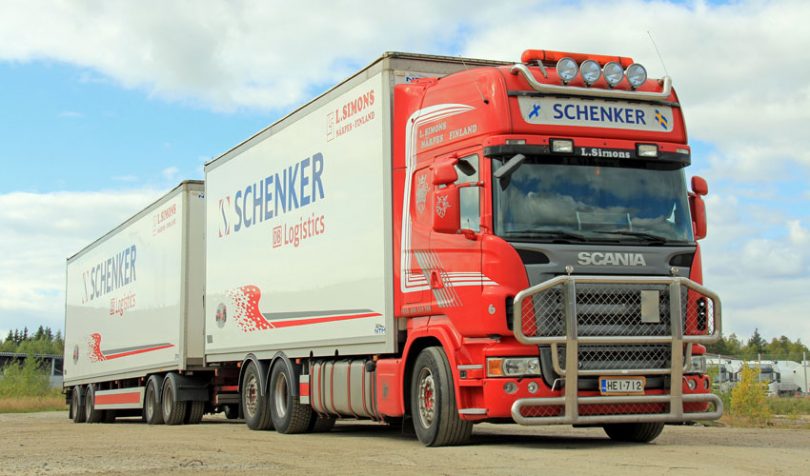On the 16th July, Austrian newspaper Tiroler Tageszeitung reported that a new blockchain logistics consortium has been founded for the Austrian shipping industry. Managed by EY, members include LKW Walter, DB Schenker, BVL, WU Vienne, standards body GS1 Austria and its digitization subsidiary EDITEL Austria.
The logistics consortium plans to digitize freight documents, such as consignment notes. Storing and sharing these documents on a blockchain saves time and money while also creating trust in an industry susceptible to fraud.
Yesterday’s report claims that the firms could save 12 million sheets of paper by automating around 75 million processes per year.
DB Schenker is the logistics and transport subsidiary of Deutsche Bahn, a big player in the blockchain space. The holding firm has many projects on the go and DB Schenker is using the technology for quality assessment.
“We are vigorously pursuing digitization initiatives in the logistics sector in order to be able to offer our customers even more efficient solutions,” stated the firm’s CEO Alexander Winter.
EY’s Michael Schramm, head of the company’s German-speaking blockchain arm, said: “Blockchain holds enormous potential for all industries, especially those with many standardized processes such as transport and logistics – if you use the technology properly.”
The head of standards body GS1 Austria, Gregor Herzog, agreed, as he considers blockchain to have “disruptive potential for logistics and supply chain management.” Last month, the US arm of GS1 was announced as a high profile member of HyperLedger.
This year, the consortium will undertake a pilot program for shipping documents and analyze the results, leaving room for the possibility of more members to join. This is ahead of the commercial blockchain platform launch slated for 2020, according to a statement from EY.
It is currently unclear what blockchain platform the project will be built on, or whether the mostly local firms plan to join a more international group.
Either way, the consortium may have some stiff competition. The industry has plenty of digitization initiatives, with IBM/Maersk’s TradeLens perhaps the largest yet, representing over half the world’s container cargo capacity. Other leading groups in shipping logistics include the GSBN and Dutch project DELIVER (ABN Amro, Port of Rotterdam, Samsung SDS), which recently completed an entirely paperless freight journey.






